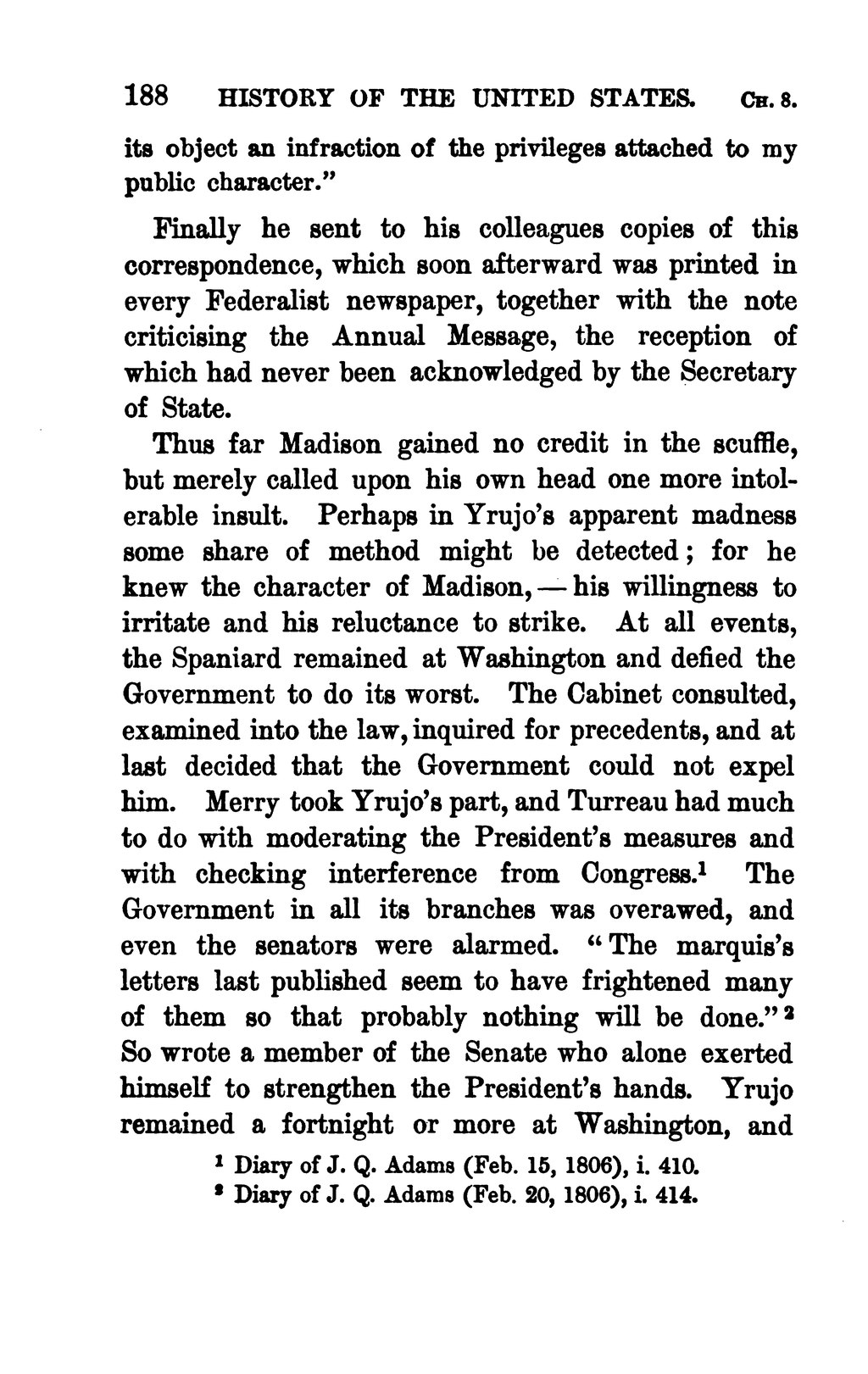its object an infraction of the privileges attached to my public character."
Finally he sent to his colleagues copies of this correspondence, which soon afterward was printed in every Federalist newspaper, together with the note criticising the Annual Message, the reception of which had never been acknowledged by the Secretary of State.
Thus far Madison gained no credit in the scuffle, but merely called upon his own head one more intolerable insult. Perhaps in Yrujo's apparent madness some share of method might be detected; for he knew the character of Madison,—his willingness to irritate and his reluctance to strike. At all events, the Spaniard remained at Washington and defied the Government to do its worst. The Cabinet consulted, examined into the law, inquired for precedents, and at last decided that the Government could not expel him. Merry took Yrujo's part, and Turreau had much to do with moderating the President's measures and with checking interference from Congress.[1] The Government in all its branches was overawed, and even the senators were alarmed. "The marquis's letters last published seem to have frightened many of them so that probably nothing will be done."[2] So wrote a member of the Senate who alone exerted himself to strengthen the President's hands. Yrujo remained a fortnight or more at Washington, and
